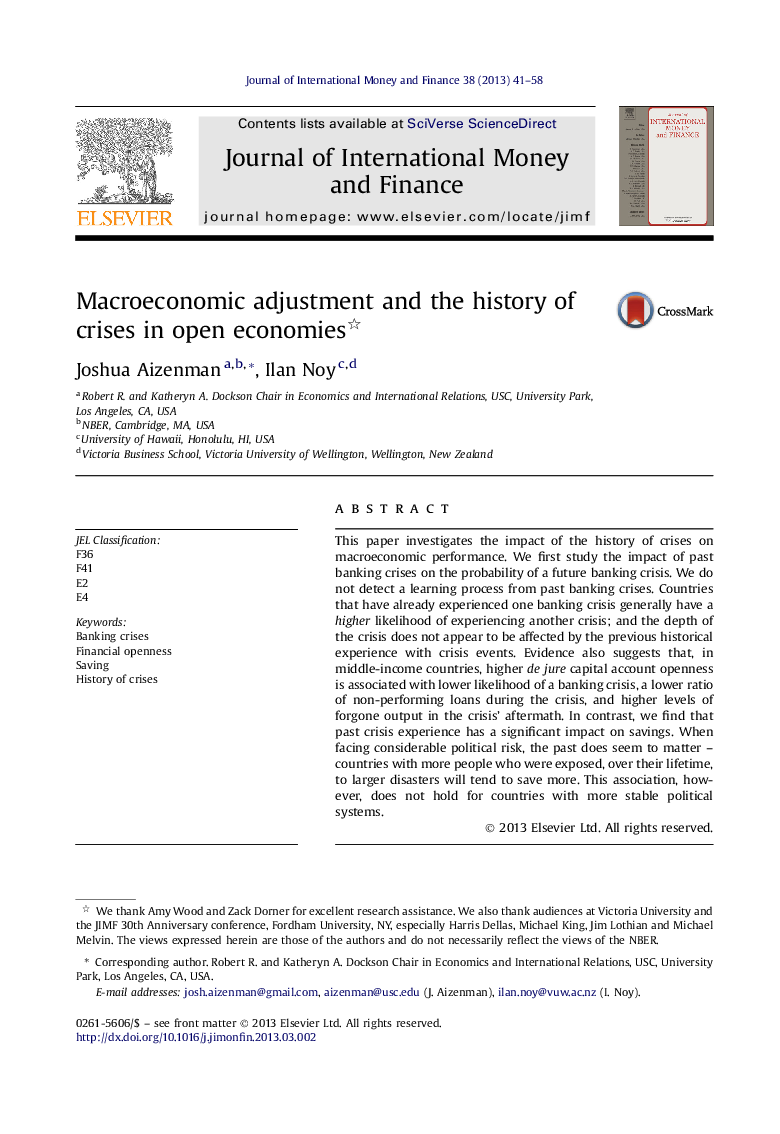| Article ID | Journal | Published Year | Pages | File Type |
|---|---|---|---|---|
| 963901 | Journal of International Money and Finance | 2013 | 18 Pages |
•A banking crisis today is associated with a higher likelihood of future crisis.•Crisis depth is not affected by historical experience with banking/currency crisis.•Financial openness is associated with fewer non-performing loans, higher forgone cost.•Past crisis history has a significant impact on savings.•Past income shocks increase saving rate in countries with weak institutions.
This paper investigates the impact of the history of crises on macroeconomic performance. We first study the impact of past banking crises on the probability of a future banking crisis. We do not detect a learning process from past banking crises. Countries that have already experienced one banking crisis generally have a higher likelihood of experiencing another crisis; and the depth of the crisis does not appear to be affected by the previous historical experience with crisis events. Evidence also suggests that, in middle-income countries, higher de jure capital account openness is associated with lower likelihood of a banking crisis, a lower ratio of non-performing loans during the crisis, and higher levels of forgone output in the crisis' aftermath. In contrast, we find that past crisis experience has a significant impact on savings. When facing considerable political risk, the past does seem to matter – countries with more people who were exposed, over their lifetime, to larger disasters will tend to save more. This association, however, does not hold for countries with more stable political systems.
